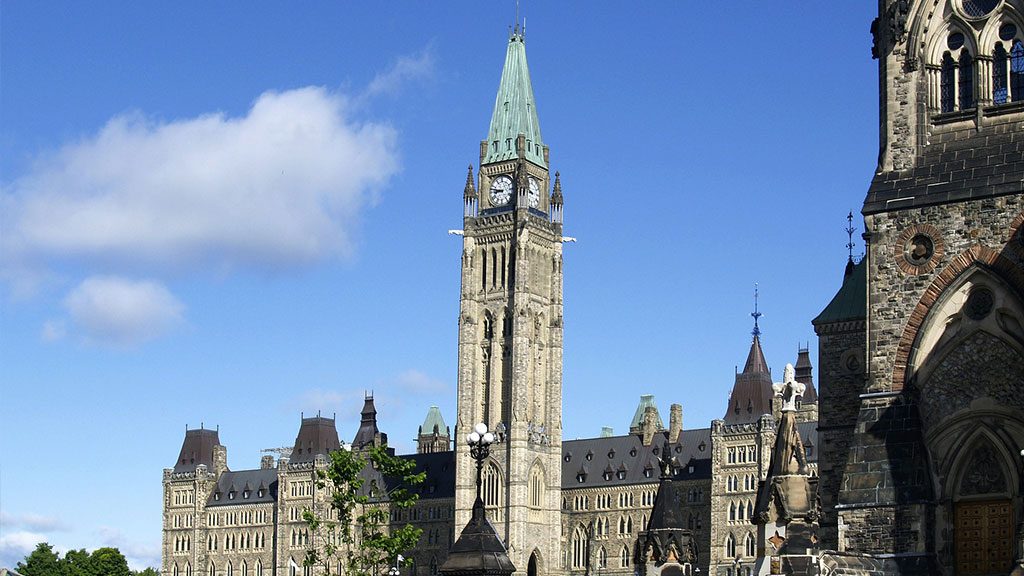With the COVID-19 pandemic well into its second year in Canada, contractors suffering from its economic fallout are learning there are still a lot of subsidy opportunities available from the federal government and other sources.
Members of the Newfoundland and Labrador Construction Association were invited to attend an online presentation recently hosted by the association and the St. John’s accounting firm Noseworthy Chapman. The event was billed as Navigating COVID-19 Government Programs.
Presenters Dorothy Keating and Colleen O’Keefe, both accountants, offered updates on eight support programs available: the Canada Emergency Wage Subsidy (CEWS), the Canada Emergency Rent Subsidy (CERS), the Canada Emergency Business Account (CEBA), the HASCAP Loan, the Canada United Small Business Relief Fund Grant, the Canada Recovery Benefit (CRB), the Canada Recovery Sickness Benefit (CRSB) and the Canada Recovery Caregiving Benefit (CRCB). The first five are for businesses, and the last three are personal support programs.
Keating advised that contractors should not assume they do not qualify for a program merely because their business receipts have fluctuated.
“We try to alert people to what’s available to them, and also make sure that they don’t miss any opportunity for any funding that may be available,” she said.
With the CEWS, for example, “What I am finding is that…there’s been many iterations as the government has refined and defined what is in the wage subsidies, and…what we’re finding is that individuals may have had one month where revenue has declined, then went up for the next two months, and have automatically assumed that they’re not eligible for a subsidy, and that is an incorrect assumption.”
Her firm recommends that contractors download the Excel file that Canada Revenue Agency has provided on its website and run calculations on their revenue streams “to ensure that you’re not assuming that you’re not eligible for a subsidy.”
Keating also urged contractors looking for information to ensure they rely on the latest version available, given that program eligibility has tended to shift frequently throughout the pandemic.
“While the pace of change has slowed dramatically in the last few months, anything can change at any particular date,” she said.
Highlights of the business programs are as follows:
- CEWS — wages. Non-repayable subsidy that covers a portion of the first $58,700 of an employee’s eligible payroll to a maximum benefit of $847 per week. Federal program announced March 2020, initially to Aug. 29, 2020. Extended to December 2020, second extension to June 2021. The maximum base wage subsidy rate for active employees will remain at 40 per cent, and the maximum top-up wage subsidy rate for employers most adversely impacted by the pandemic remains at 35 per cent.
- CERS — rent. Announced in fall 2020, runs to June 2021. Previous rent subsidy, abandoned by the government, was claimed by landlord. Available to businesses, NPOs and charities with a drop in revenue. Subsidy paid directly to qualifying renters and property owners, landlord not required to participate.
O’Keefe noted: “You may also be eligible for lockdown support under this program, so for the eligible time that we were under lockdown, there would be additional top-up available under this program similar to the wage program.”
- CEBA — loan. Federal interest-free loan program administered by financial institutions. Loans of up to $40,000 and if repaid before Dec. 31, 2022, 25 per cent up to a maximum of $10,000 will be forgiven. If not, converted to three-year term loan with interest at five per cent. Expanded December 2020, additional $20,000 with half forgivable. Two eligibility streams, payroll and non-deferrable expenses. Deadline to apply was March 31, 2021; last date to withdraw/transfer funds (if CEBA loan is an operating line of credit) is June 30, 2021.
- HASCAP — loan. Highly Affected Sectors Credit Availability Program, announced in January. Loans available $25,000 to $1 million per legal entity. Program application period ends June 30, 2021.
“Many people have assumed, incorrectly, that this loan is only for those in the hospitality industry,” Keating said, noting almost any type of business appears to be qualify. “This loan is not just a hospitality loan…it’s a highly attractive loan if you meet the requirements because there is no personal guarantee that’s required to secure the loan.”
- Canada United Small Business Relief Fund — grant. Created by RBC and administered by the Ontario Chamber of Commerce, for firms anywhere across Canada with annual sales in 2019 of $150,000 to $3 million. Maximum grant is $5,000. Categories of purchases eligible for reimbursement: purchase of PPE; renovation of space to adhere to re-opening guidelines; enhancement of website to develop e-commerce capability.
Follow the author on Twitter @DonWall_DCN.





Recent Comments
comments for this post are closed